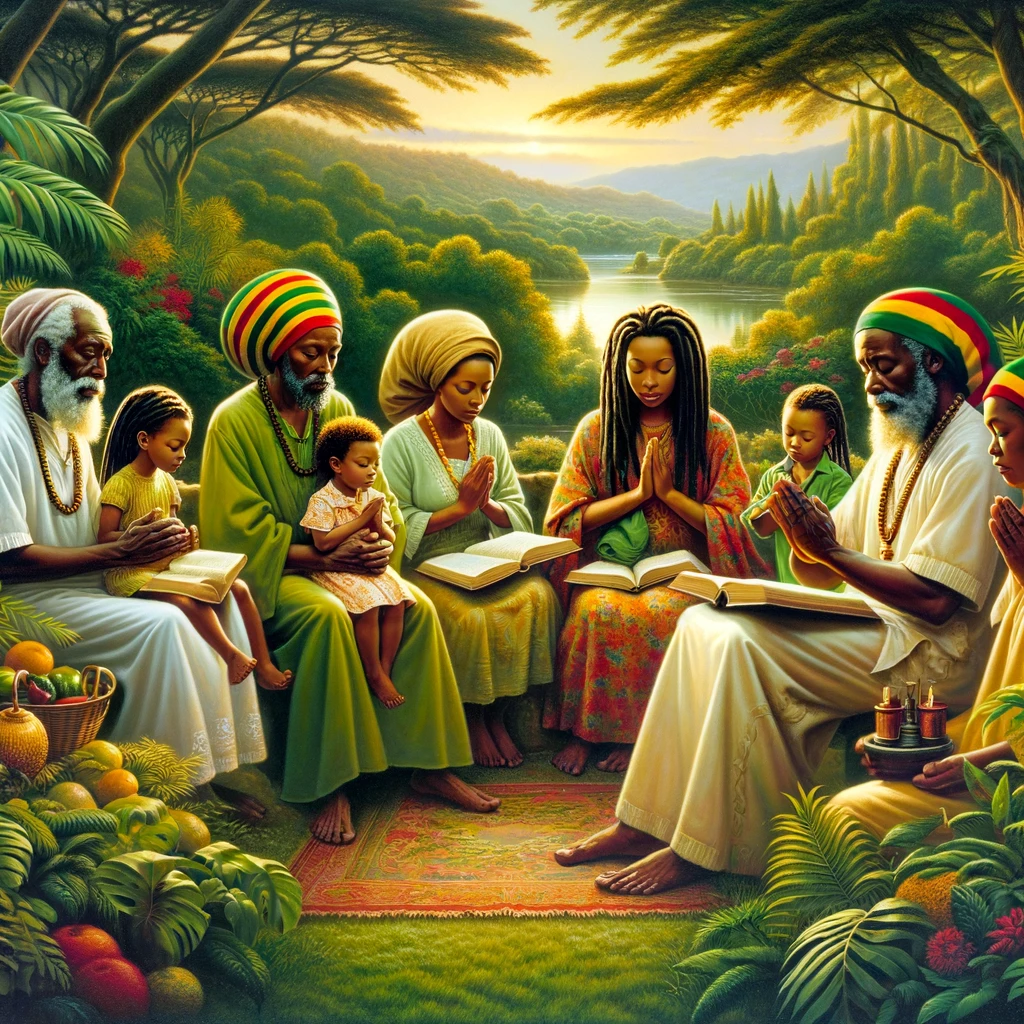The Sabbath, or “Sabbath Day,” holds a special place in Rastafari culture, observed from sunset on Friday until sunset on Saturday. It’s a time for rest, worship, and strengthening community bonds.
1. Spiritual Observance and Biblical Roots
The Sabbath in Rastafari is deeply rooted in biblical traditions, reflecting the commandment to keep the seventh day holy as a day of rest. Rastafari interpret this commandment strictly, using the day to step back from worldly labors and focus on spiritual enrichment and communion with Jah (God).
2. Nyabinghi Issemblies and Reasoning Sessions
Sabbath gatherings often involve Nyabinghi drumming sessions and reasoning, where community members come together to discuss spiritual matters and meditate on the teachings of the Bible and Rastafari philosophy. These assemblies reinforce communal ties and provide a platform for spiritual guidance and growth.
3. The Role of Food and Ital Diet
During the Sabbath, the preparation and sharing of Ital food play a significant role. This is a time when families and communities prepare and enjoy meals together, adhering strictly to the Ital diet principles, which emphasize natural and clean eating. The communal meal not only nourishes the body but also strengthens the spiritual and communal bonds among members.
4. Reflection and Renewal
The Sabbath is also a time for personal reflection and renewal. Rastafari use this day to introspect on their spiritual journey, make plans for the upcoming week, and resolve to live in closer alignment with their faith and community values.
Closing Thoughts
The Sabbath in Rastafari culture is more than just a day of rest; it’s a vital institution that nurtures the community’s spiritual, physical, and social well-being. It’s a day that underscores the Rastafari commitment to faith, harmony, and the continual quest for a deeper connection with the divine.

